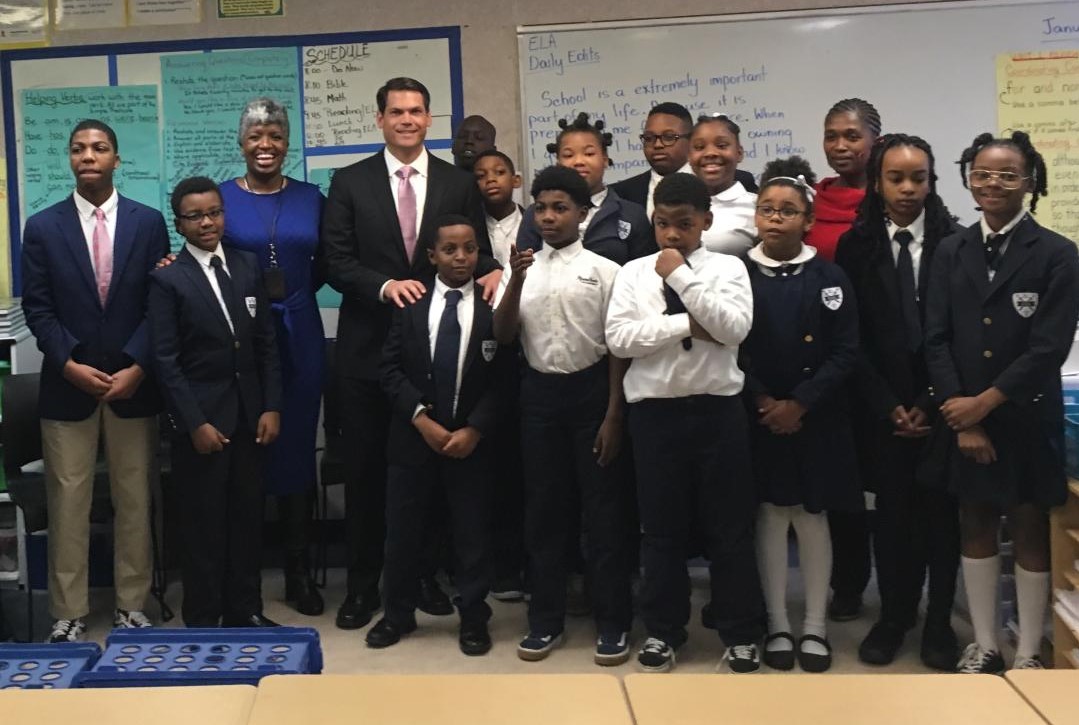Will Ga. Lawmakers Consider School Vouchers In A Tight Budget Year?

Georgia Lt. Gov. Geoff Duncan visited Atlanta Youth Academy in 2019 to celebrate National School Choice Week. AYA receives vouchers from Georgia’s Tax Credit Scholarship Program to help students pay tuition.
Martha Dalton / WABE
It’s National School Choice Week when some education advocates across the country will promote expanding school options for families. School choice covers a variety of programs, including charter and magnet schools, traditional public schools, online academies, home schooling, private schools and school vouchers or scholarships.
Different Types Of Vouchers
Typically, voucher or scholarship programs provide families with public money they can put toward private school tuition.
Georgia already has two voucher-comparable programs. One is a scholarship for children with special needs. The other gives dollar-for-dollar tax credits to people who donate to Student Scholarship Organizations (SSOs) so students can attend private schools. The two programs are “stackable,” meaning students can take advantage of both programs at the same time.
A third kind of voucher program came up for a Senate vote last year but narrowly failed. Because this is the second year of Georgia’s two-year session, lawmakers could reconsider Senate Bill 173 this year.
The legislation would create Education Savings Accounts (ESAs) for students. Under the plan, states put money into accounts for each participating student. The funds can be used for private school tuition or other educational expenses, like tutoring, home schooling and higher education costs.
Some political watchers say the chances of a voucher bill passing this year are slim since Gov. Brian Kemp has asked most departments to trim their budgets. State officials estimated last year an ESA program would cost Georgia $48 million the first year and could get up to $543 million over 10 years.
Backers Versus Detractors
Opponents of voucher programs say they siphon money away from public schools. Supporters say they’re revenue neutral because the state money allocated for students follows them to private schools.
The Professional Association of Georgia Educators recently issued an analysis of the three voucher programs. WABE education reporter Martha Dalton talked to PAGE’s senior legislative policy analyst Claire Suggs, who authored the report.
Listen to an extended version of this interview with PAGE’s senior legislative policy analyst Claire Suggs and director of legislative services Margaret Ciccarelli:








